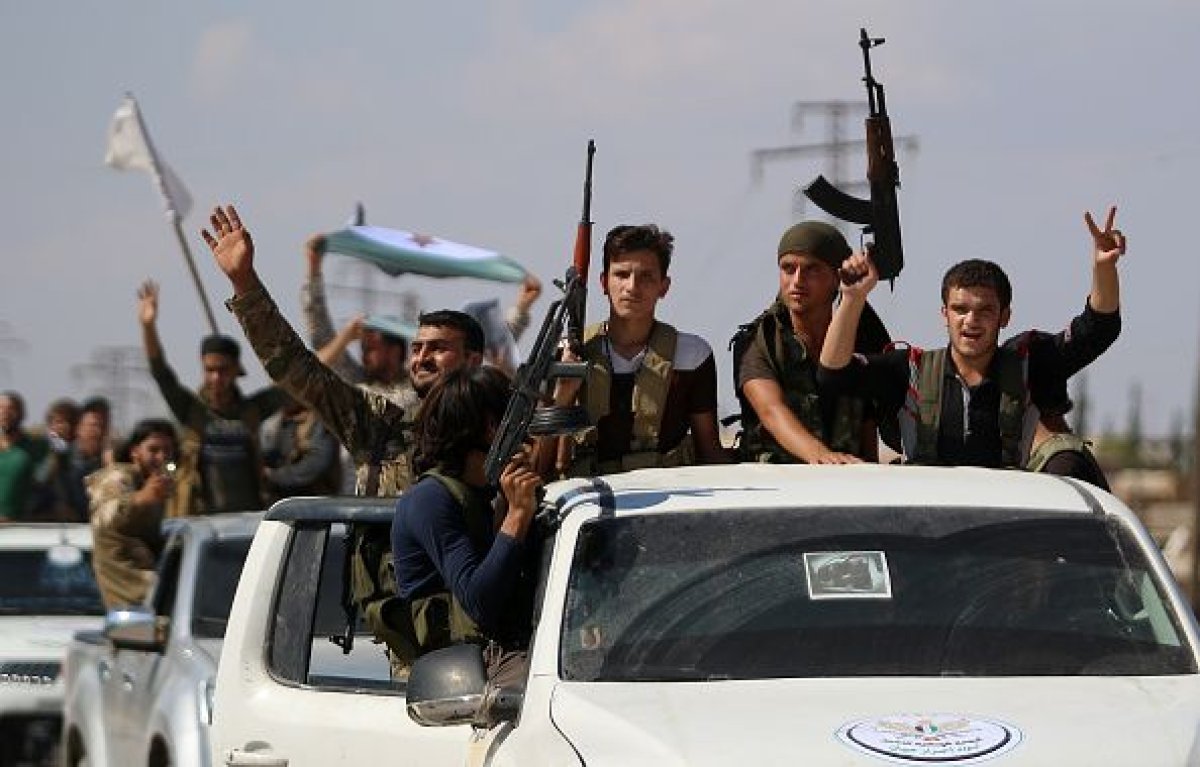As Russia and Iran prepare to support the Syrian government's planned offensive against the rebel-held province of Idlib, Turkey is allegedly working behind the scenes to undermine them by providing arms to the rebels, according to reports.
Rebel sources in Idlib told Reuters that Turkey has been giving large supplies of weapons, including rockets, to rebels in Idlib after leadership in Ankara failed to convince Russia and Iran to call off the offensive. Leaders from Iran, Russia, and Turkey met last Friday to discuss Syria's future, but only Turkey opposed the attack. Russia has already started supporting the Syrian offensive with some preliminary airstrikes in the area.
Turkish President Recep Tayyip Erdogan opposes the offensive against Idlib because it is expected to cause a humanitarian catastrophe that could send around 1 million new refugees from the Syrian province into Turkey. There are nearly 3 million people living in Idlib, most of whom are civilians.
Turkey is currently suffering from a severe economic crisis, which has worsened following an ongoing diplomatic dispute with the U.S. Ankara's leadership fears the country could struggle to support the additional refugees.

The U.S. too has been lobbying against the attack on Idlib. President Donald Trump has warned that the planned offensive will cause a humanitarian disaster, and U.S. intelligence forces have said they believe Syria plans to use chemical weapons against civilians. During a speech in Washington on Monday, national security adviser John Bolton warned that the U.S., France and the U.K. would launch strikes against the country if chemical weapons were used.
"We've tried to convey the message in recent days that if there's a third use of chemical weapons, the response will be much stronger," Bolton said. "I can say we've been in consultations with the British and the French, who have joined us in the second strike, and they also agree that another use of chemical weapons will result in a much stronger response," he added. The U.S. currently has around 2,000 troops stationed in Syria, and the State Department recently signaled that the U.S. is planning to keep a permanent military presence in the country in order to push Iranian-linked forces out.
Reports had suggested that the U.S. and Israel had been attempting to broker a deal with Russia that would see Iran sidelined in the region, but so far Moscow has continued to work closely with Tehran.
Officials in Russia responded to Bolton's comments on chemical weapons, adding that the U.S. was attempting to blackmail and threaten Russia, which claims that the offensive is necessary in order to root out terrorists in the region.
Uncommon Knowledge
Newsweek is committed to challenging conventional wisdom and finding connections in the search for common ground.
Newsweek is committed to challenging conventional wisdom and finding connections in the search for common ground.
About the writer
Cristina Maza is an award-winning journalist who has reported from countries such as Cambodia, Kyrgyzstan, India, Lithuania, Serbia, and Turkey. ... Read more
To read how Newsweek uses AI as a newsroom tool, Click here.








